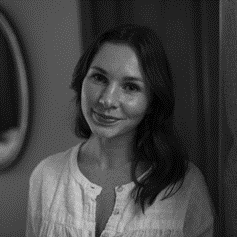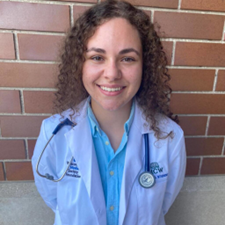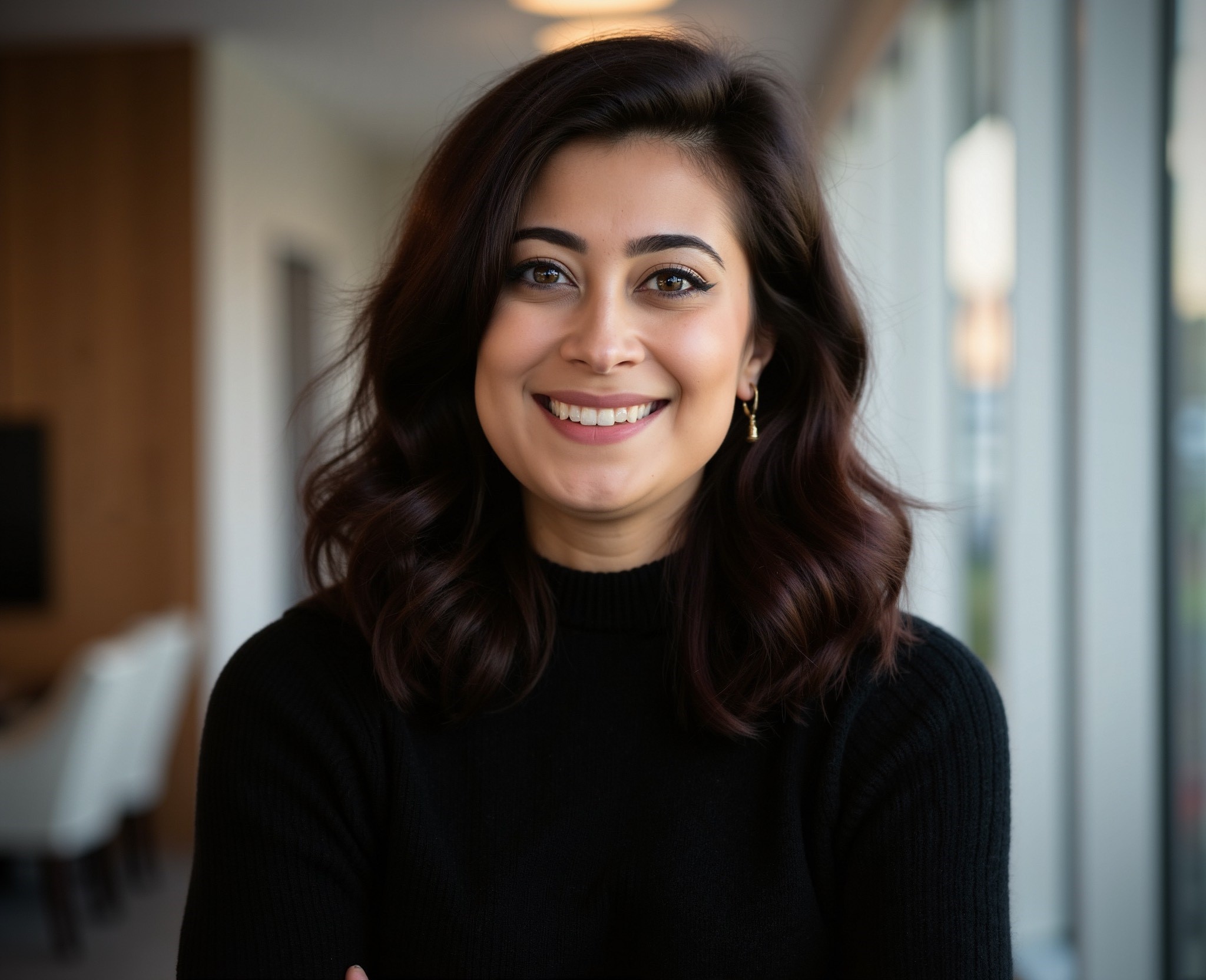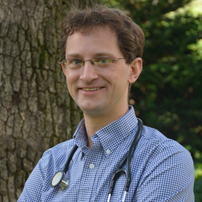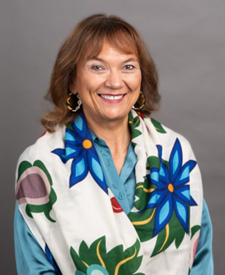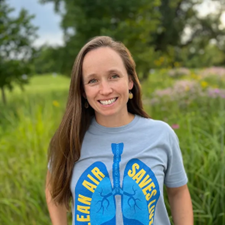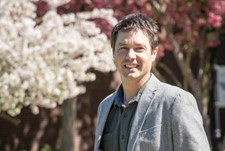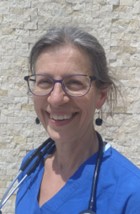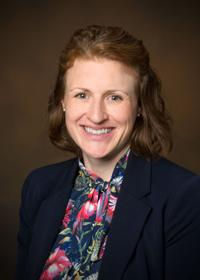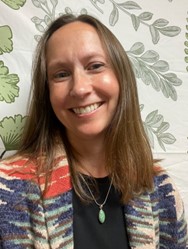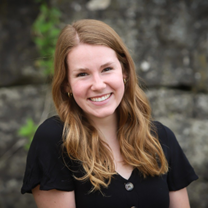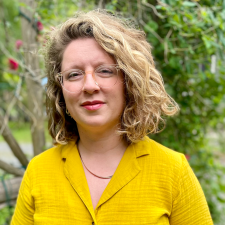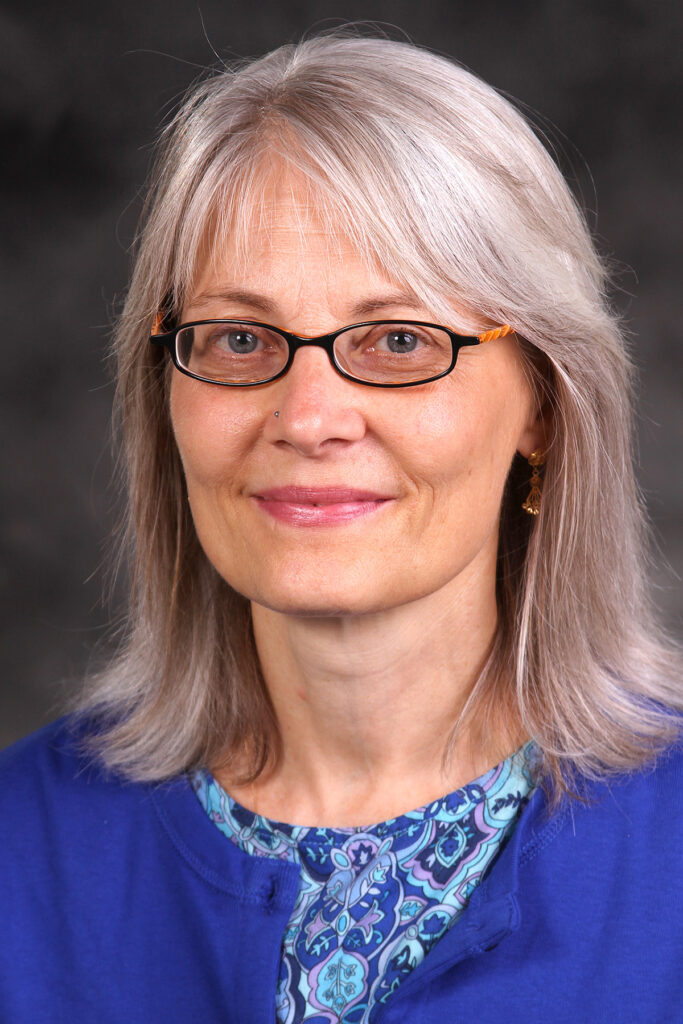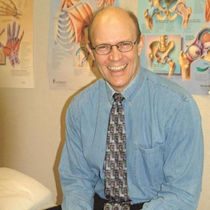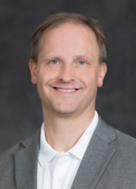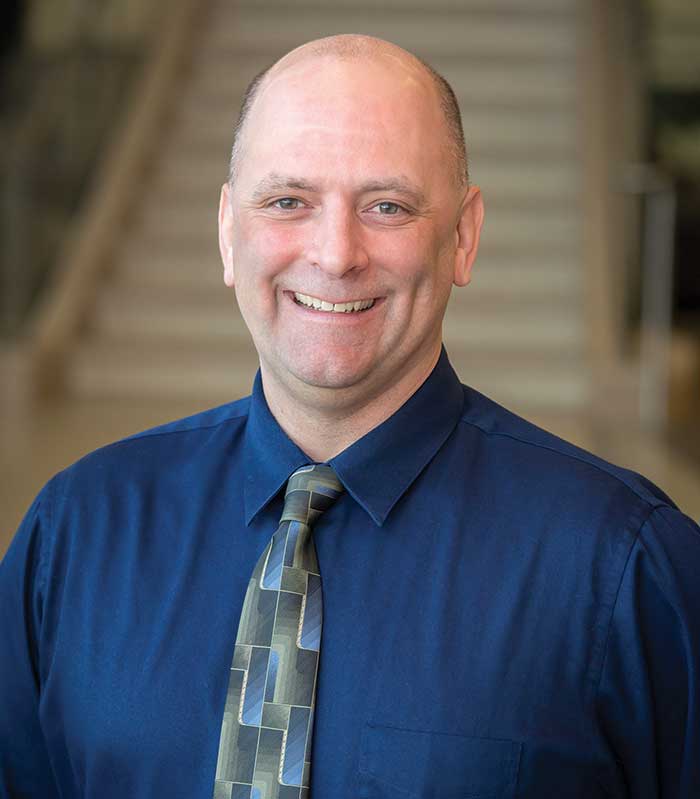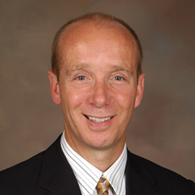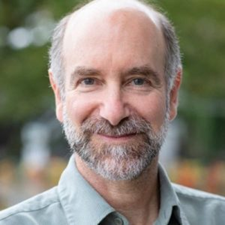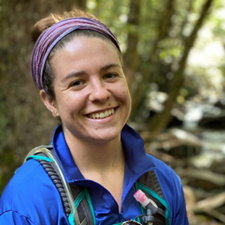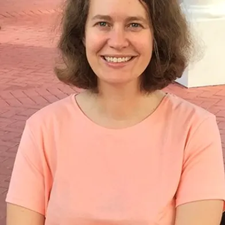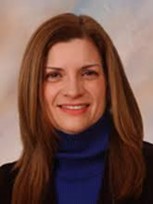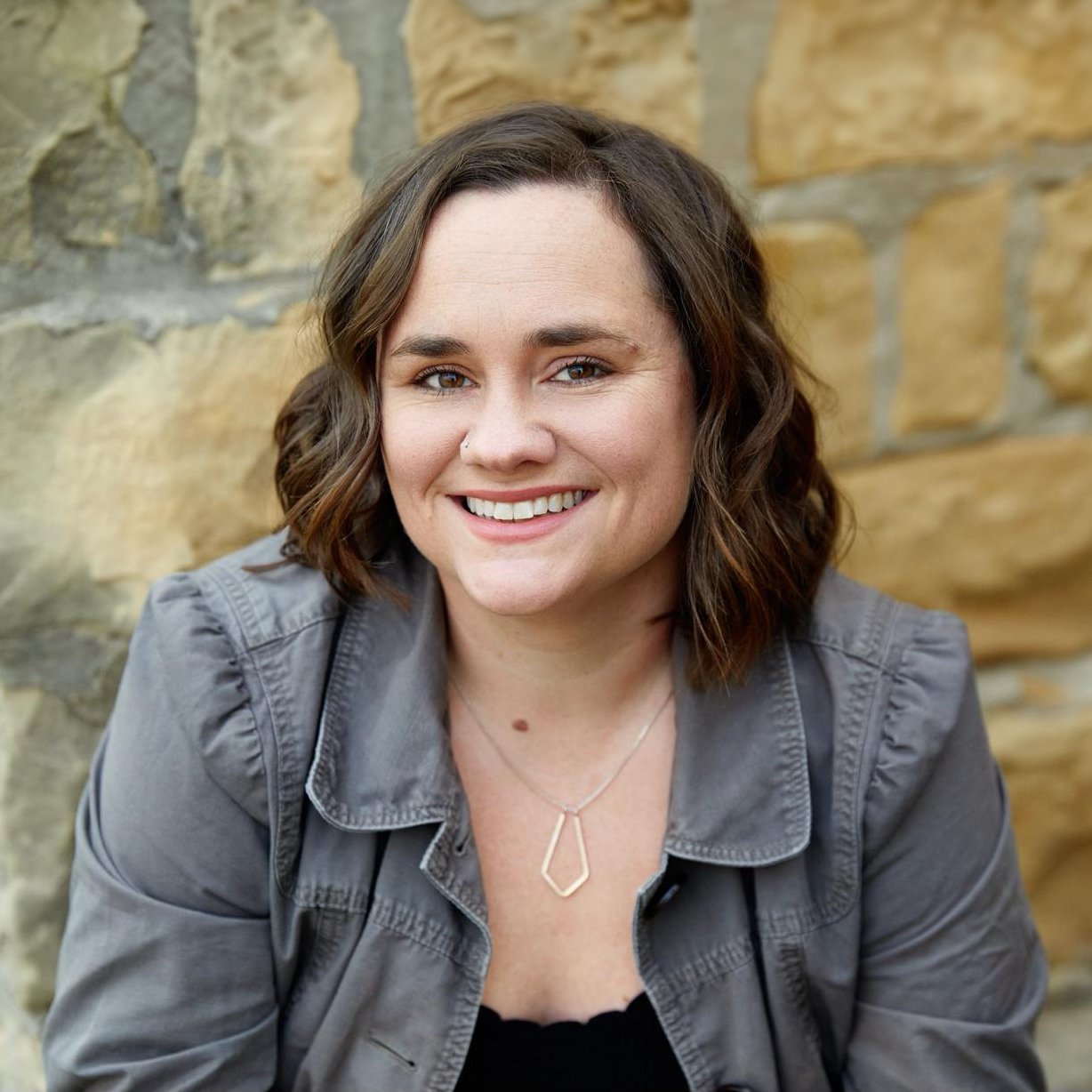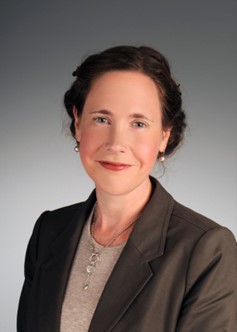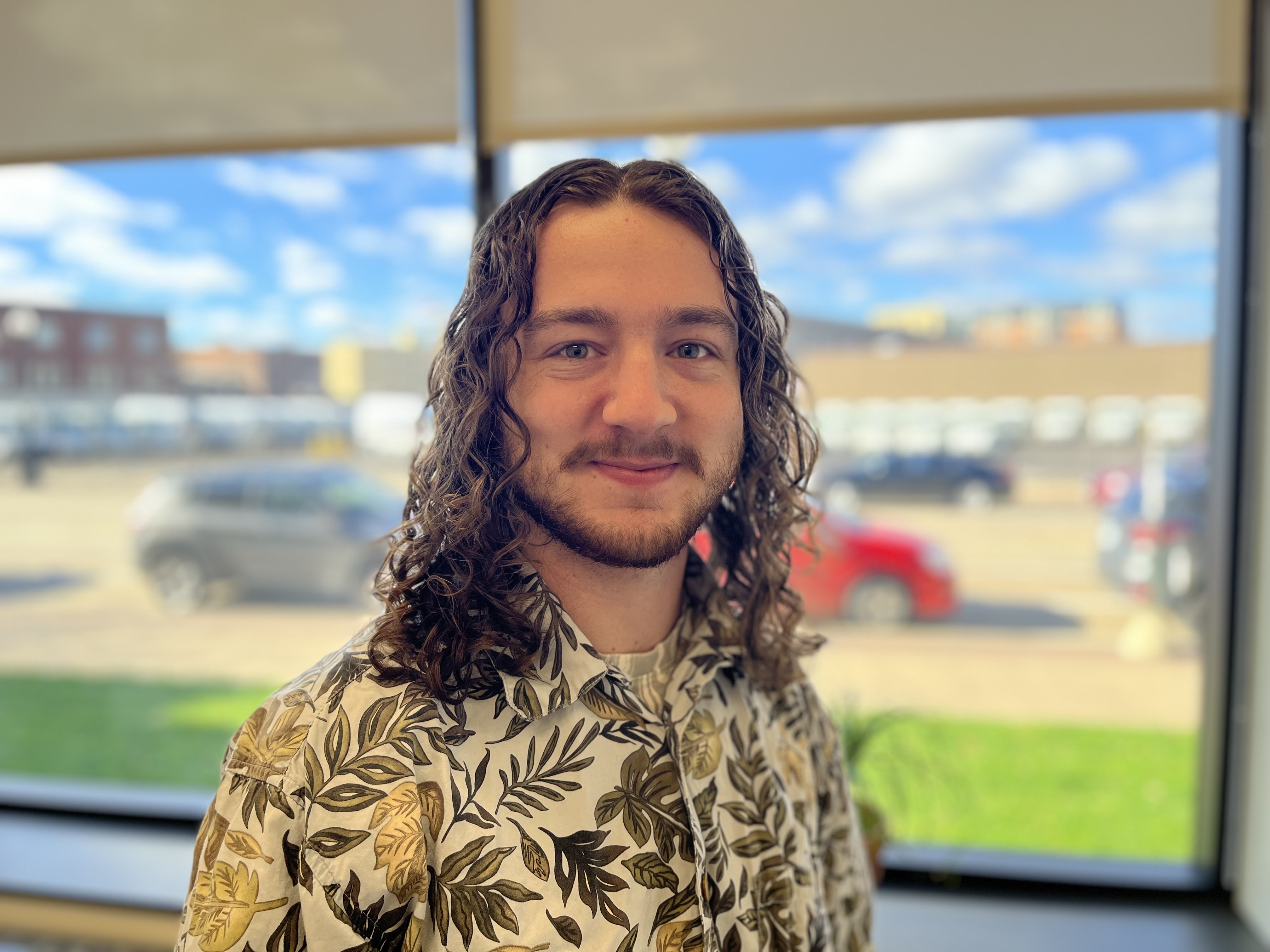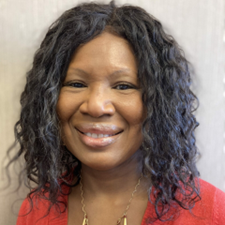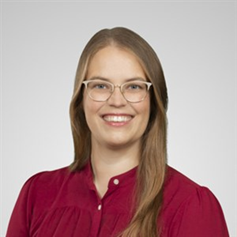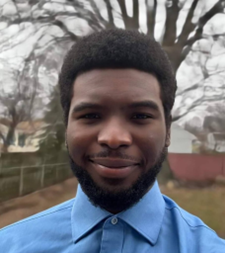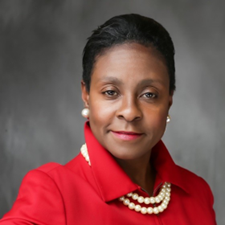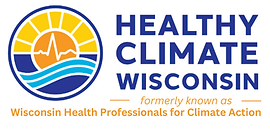
Power Shift: Turning the Tide for Health and Energy Justice
Caring for Communities on a Warming Planet
What if the health of our communities was defined not just by levels of chronic disease or sickness, but by compassionate community care centered on a better quality of life for all?
Join us in exploring the intricate web of social determinants of health—elements like healthy housing, reliable transit, healthcare access, and clean air and water—that shape the well-being of populations. With climate change emerging as a defining challenge of our time, this event will delve into how environmental factors intertwine with these determinants, impacting population health on a scale never before seen. Diverse stories from across the Midwest will illustrate the real-life symptoms we’re already seeing in our work and the places we know and love.
Health workers, community-based organizations, and experts will gather to discuss innovative solutions that address these critical intersections, highlighting the urgent need for holistic approaches that integrate climate resilience into health strategies. Through thought-provoking panels, case studies, and collaborative sessions, attendees will gain insights into strategies that can grow Wisconsin’s rural and urban communities into healthier places for all.
Let’s reimagine how we care for one another. Bring your ideas to the evolving conversation on collective well-being. Connect to health professionals taking on-the-ground action today to shape a more equitable, thriving tomorrow.
NEW for 2024 - Call for Posters
DEADLINE EXTENDED for abstracts to November 2, 2024!
Registration Pricing
We believe that everyone should have the opportunity to participate.
If registration fees, travel, or accommodation are influencing your decision to attend, at all, please fill out this quick form for discounts and/or full scholarships.
Includes meals | Full Conference (Friday and Saturday) | 1-Day Only (Friday OR Saturday) | Farm to Table Workshop and Meal (Limit 50 participants) |
Physicians | $175 | $100 | SOLD OUT |
| Practicing Public and Healthcare Professionals or Health Administrators | $125 | $80 | |
| Community Members | $75 | $50 | |
| Students, Fellows, Residents, Retirees, or Fixed-Income | $40 | $25 |
Statement of Need
Over 230 medical journals issued an unprecedented joint statement calling upon health professionals and health institutions to take emergency action on climate change to protect health (BMJ, 2021). This call to action highlighted that human-caused warming is unequivocal, with its health impacts already evident. For instance, heat-related mortality for adults over 65 and children under one year of age increased by a dramatic 68% over the last 20 years (Romanello et al., 2022). Striking statistics like this are emerging across health outcomes and specialties, including heightened cardiovascular and pulmonary morbidity, increased risk of premature birth, neurological changes, renal failure, adverse mental health impacts, food insecurity, and rising infectious diseases and vector-borne illnesses (Romanello et al., 2022; Patz et al., 2020).
The burden of fossil fuels on human life and suffering is disproportionately shouldered by ethnic and racial groups already affected by systemic racism, low-income communities, pregnant individuals, outdoor workers, those living with chronic conditions or disabilities, children, and adults over 65. However, transitioning to clean energy and other climate solutions presents a significant opportunity to lessen health disparities (Patz, 2016). Since climate change and pollution negatively impact every social determinant of health, from economic security to transportation and food systems, building solutions allows us to address these barriers in unique, transformative ways.
The broad and far-reaching consequences of the climate crisis on health in Wisconsin and the importance of collective solutions make this critical for all members of the interprofessional health team (Wellbery et al., 2018; Leffers et al., 2017; Eide & Odom-Maryon, 2019). This event will help learners understand and treat the underlying root causes harming their patients and population health, while growing skills for the clinic, policy change, and community action.
You can find additional calls to action from various health professions here: nursing, occupational therapy, physical therapy, physiatry, social work, pharmacy, psychology, psychiatry, pediatricians, family medicine, public health practitioners, and physical therapy.
Intended Audience
This workshop is designed for students, early, mid- and late-career professionals and retirees, from a wide variety of healthcare and public health settings, both clinical and non-clinical. Whether you work in an independent practice, community hospital, academic center, laboratory, nonprofit, local and state government, school, long-term care facility, or home care, this experience will provide valuable knowledge and tools to improve the quality of life for those you care for.
Elements of Competence
This educational activity is designed to change learner competence and focuses on the following competencies:
- Accreditation Council for Graduate Medical Education (ACGME)/Nursing: Interpersonal and Communication Skills
- National Academy of Medicine (NAM)/Nursing: Population Health
- Center for the Advancement of Pharmacy Education (CAPE): Population-Based Care
- Interprofessional Education Collaborative Competencies: Teams and Teamwork
- Diversity, Equity, and Inclusion: Address Health Disparities
Learning Objectives
Following this conference, participants as members of the interprofessional healthcare team will be able to:
- Discuss on-the-ground threats to clean air, safe water, and a stable climate across rural and urban Wisconsin that harm patients and community health.
- Integrate climate, health, and equity as a moral and professional imperative for protecting our most vulnerable, preparing for health emergencies, and promoting resiliency.
- Identify how health professionals can provide compassionate care for communities with solutions in Wisconsin's housing, transportation, food, and energy sectors.
- Illustrate scientifically sound information and strategies for healthcare workers to discuss the impact of climate on health and solutions with colleagues, patients, and family members, the local community, or policymakers.
- Build advocacy skills that public health and healthcare workers can practice to grow consensus and momentum for systems change.
- Develop networks of healthcare professionals, community members, and organizations to support ongoing learning after the conference through interactive sessions.
Agenda
Friday, November 15, 2024, 8:30 AM to 7:45 PM (CST)
Time (CST) | Topics/Highlights | Learning Objectives |
| 8:00-8:30 AM | Registration and Check-in | |
| 8:30-8:40 AM | Welcome ~ Abby Novinska-Lois, MPH No continuing education credit can be earned for this session. | |
8:45-9:00 AM | Climate & Health Vital Signs ~ Joel Charles, MD, MPH |
|
| 9:00-10:00 AM | Moving from Energy Burden to Energy Justice ~ Bryan Rogers, Hannah Sorensen, and Yusuf Adama |
|
| 10:00-10:15 AM | Break | |
| 10:15 AM-11:15 PM | Under Pressure: Mental Health on a Warming Planet ~ Sarah Francois, LCSW, Emily Walz, MD, Lisa Cottrell- PhD, CBSM, DBSM, and |
|
| 11:15-11:30 AM | Break | |
| 11:30-12:45 PM | Indigenous Ways of Knowing about Wisconsin's Tribal Nations ~ Annie Jones, PhD |
|
| 12:45-1:30 PM | Lunch | |
| 1:30-3:00 PM | Climate-Smart Health in the Workplace: Tours and Workshop Includes a private on-site tour of Gundersen Health’s campus, the first energy independent health system in the nation. ~ Dawn Brintnall, Jeff Rich, BS, Alan Eber, Jesse Beckendorf, and Kelly Isabelle DeMarco |
|
| 3:00-3:15 PM | Break | |
| 3:15-3:30 PM | Climate Change as a Determinant of Birth Inequities: Collaborating to Amplify Solutions ~ Michelle Hoersch, MS | Explain how climate change impacts maternal morbidity, mortality, and health equity. |
| 3:30-4:30 PM | Putting Profits Over Public Health: Climate Crimes and the Fight for Accountability ~ Kelly Sanks, PhD, Iyla Shornstein, and Jonathan Patz, MD, MPH |
|
| 4:30-4:45 PM | Active Transportation In-person only | Identify infrastructure solutions that lower transportation barriers and promote more active lifestyles. |
| 4:45-5:45 PM | Refreshments and Posters Award Ceremony begins at 5:15 PM In-person only No continuing education credit can be earned for this session. | |
| 6:30-7:45 PM | Taste the Benefits: A Farm-to-Table Dinner and Workshop Add on workshop; Limit of 50 participants In-person only |
|
Saturday, November 16, 2024, 8:30 AM to 3:15 PM (CST)
Session Time | Topics/Highlights | Learning Objectives |
| 7:30 AM | Bike Infrastructure Ride Join us for a morning bike ride to explore the biking and active transit infrastructure in La Crosse. Get to the conference in a fun way and meet others, while experiencing what active transit means for our communities, health, and climate. If you have never biked in all-weather before, this is also a great chance to learn more about what gear can make our ride more comfortable and gain some bike safety tips! No continuing education credit can be earned for this session. | |
| 8:30-10:00 AM | Interactive Climate Patient Case Studies ~ Joanne Bernstein, MD, Victoria Gillett, MD, Alex Zielinski, DNP, In-person only |
|
10:00-10:15 AM | Break | |
| 10:15-10:45 AM | Shifting Our Energy System 101 ~ Joel Charles, MD, MPH and Jed Downs, MD, MPH, DOMP |
|
| 10:45 AM-12:15 PM | Policy Blueprints for Turning the Tide An Introduction to the Wisconsin Policy Landscape and Lessons from Successful Midwest Climate Bills ~ Jennifer Giegerich, Tonyisha Harris, and Yvonne Collins, MD, FACOG |
|
| 12:15-12:45 PM | Lunch | |
| 12:45-1:15 PM | Lunch and Learn: A Conversation on Food Justice ~ Valeria Hairston, DPM |
|
| 1:15-2:00 PM | Know Your Utility ~ Brittany Keyes, PT, DPT, ATC In-person only |
|
| 2:00-2:15 PM | Break | |
| 2:15-3:15 PM | Advocacy Workshop ~ Laura Lane, JD In-person only |
|
Program Changes
Emergency situations occasionally occur and may necessitate topic or speaker changes. The University of Wisconsin-Madison ICEP reserve the right to alter or substitute a topic or speaker without prior notification.
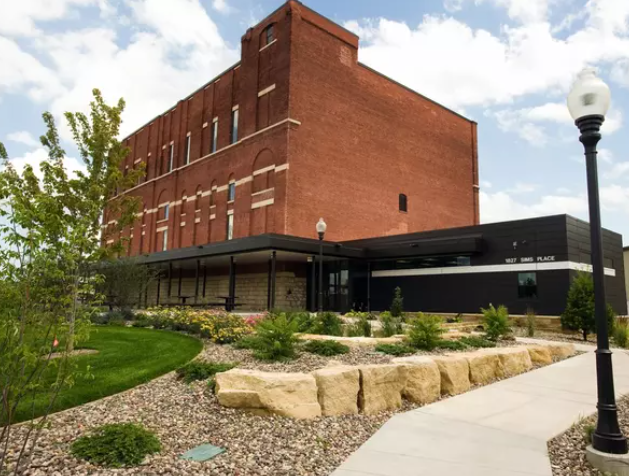
Hotel Options
- Radisson Hotel La Crosse - Special Rate Available
- Home2 Suites by Hilton
- Fairfield Inn and Suites by Marriott
- Hampton Inn and Suites
Consider using the La Crosse bus system or Drift Cycle Community Bike Share Program to get from your hotel to our conference.
Carpool or Bus
Traveling to La Crosse? Join or host a carpool! It can be a great way to connect, and it lowers our emissions. Check out our carpool spreadsheet here.
The venue is accessible from Downtown hotels and other locations through the La Crosse Bus Service.
Parking
The first 30 cars to arrive can park in Lot C nearest to the venue (enter off South Ave.). Please note that Lot C requires parking passes. A Healthy Climate Wisconsin staff member will be near the Lot C star on the map below to assist you. Those carpooling will be prioritized for spots in Lot C.
Additional free parking is available in Lot E or F (follow Sims Place to access additional parking)
Integrated Center for Education
Finding Our Location and Room
Please use the Integrated Center for Education House main entrance on the northwest corner. Just inside the entrance, take the elevator up to the 4th floor Education Center. We look forward to seeing you!

Lactation Room
The Integrated Center for Education House lactation room is located off of the kitchen area.
FAQs
What should I bring?
Please bring a laptop if you have one. A reusable mug or water bottle is encouraged, but not required, and glasses or mugs will be available.
If you are going on the bike ride, please bring warm weather and safety gear (plus your bike or an extra), for those not using Drift Cycles.
What should I wear?
You should expect that most attendees will be in dress casual clothing. But there is no recommended attire and being comfortable and mentally present is the most important.
Is there a lactation room available?
Yes, when you arrive on the fourth floor, turn right. When you see the kitchen, go through the door and turn left to access the room.
Joining Virtually? Webcast Link
All participants will be sent a link before the conference. Not all sessions will be available via webcast.
Required Hardware/Software
Free, current version of Chrome, Firefox, Safari, or Microsoft Edge with audio and video capabilities. Some older browsers and Microsoft Explorer could produce error messages or not display the content correctly.
Faculty, Facilitators, and Planning Committee Members
Abby Novinska-Lois, MPH Course Director | Abby Novinska-Lois, MPHAbby Novinska-Lois, MPH, is the inaugural Executive Director of Healthy Climate Wisconsin. Abby holds a Masters in Public Health with a Certificate in Interdisciplinary Women's Health from the University of Utah School of Medicine, a Bachelors in Environmental Science and Certificate in Environmental Studies from the University of Wisconsin-Madison, and a Graphic Design certificate from Madison College. Abby began her career as a published UW-Madison Extension Researcher focused on integrated pest management solutions and pollinators in Wisconsin agriculture. Abby played a pivotal role in the launch of Healthy Climate Wisconsin (HCW) in 2020. Serving as its inaugural Executive Director, Abby leads the charge in mobilizing health professionals to address climate-related health challenges. Her work has been recognized on the national level, with several invitations to major medical conferences and the White House. She additionally serves on the Steering Committee for the Clean Economy Coalition of Wisconsin, the Steering Committee of the Fossil Free for Health Coalition, the Leadership Team of the Wisconsin Climate Table, and the Leader Team of the Wisconsin Climate and Health Communications Collaborative. |
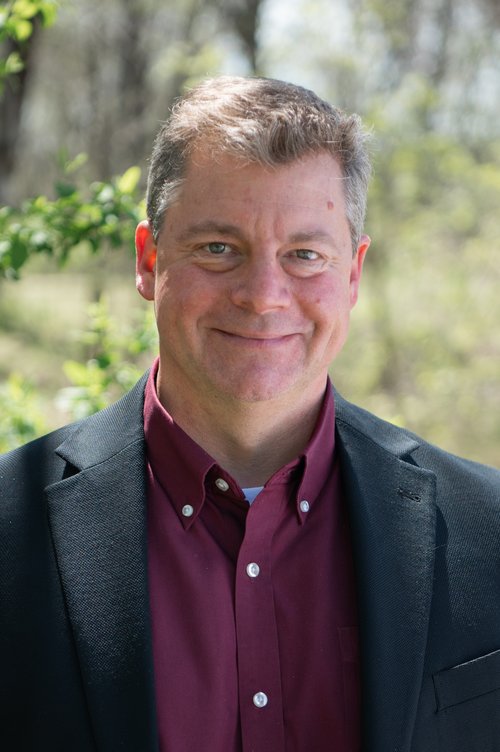 Alan Eber, MBA, BS Speaker | Alan Eber, MBA, BSAlan Eber is the Chief Executive Officer for Eneration. With 25 years of HVAC design and healthcare facility leadership experience, Alan Eber was integral in helping Gundersen become the first energy-independent health system, guiding the process as Gundersen’s Energy Manager, Director of Facilities and most recently, Director of Envision. He has a bachelor’s degree in mechanical engineering from the University of Wisconsin–Madison and an MBA from Viterbo University, La Crosse, Wisconsin. Alan has experience leading multidisciplinary healthcare teams and successfully consulting with other systems in their energy sustainability journey. |
Alexandria Zielinski, DNP, RN Speaker | Alexandria Zielinski, DNP, RNDr. Alex Zielinski is an Adult Nurse Practitioner at the Medical College of Wisconsin, where she focuses on internal medicine and is dedicated to advancing systems change and planetary health within the nursing profession. With a Doctor of Nursing Practice (DNP) from Marquette University, Dr. Zielinski's doctoral project centered on implementing environmental justice education through the Planetary Health Framework, aiming to create transformative nursing students equipped to address health disparities. Throughout her career, Dr. Zielinski has held various roles, including Clinical Faculty for Project BEYOND-2 and Mentor/Advisor Specialist at Marquette University, where she guided nursing students in their professional development. Her experience as a Registered Nurse at Ascension, particularly in labor and delivery, has further enriched her understanding of patient care and the importance of holistic health approaches. Dr. Zielinski's commitment to addressing environmental justice issues is reflected in her projects on nutrition, food access, and complementary therapies aimed at improving patient outcomes. With a passion for integrating sustainability into healthcare, she continues to advocate for systems change that promotes both individual and planetary well-being. |
Alexis Puyleart, MD | Alexis Puyleart, MDDr. Alexis Puyleart is a resident physician in Neurology at Beth Israel Deaconess Medical Center, where she is dedicated to advancing her expertise in neurological disorders. She recently completed her Doctor of Medicine (MD) at the Medical College of Wisconsin (MCW), where she was actively involved in the Kern Institute's Coaching for Character, Caring, and Competence (4C) Program. Throughout her medical education, Dr. Puyleart has been a passionate advocate for climate health, co-founding the Medical Students for a Sustainable Future chapter at MCW. Additionally, she has contributed to the development of a climate and health curriculum, emphasizing the importance of sustainability in medical education. |
Amanda Sullivan, Pharm.D. | Amanda Sullivan, Pharm.D.Dr. Amanda Sullivan, who most commonly goes by "Sully", is originally from Melrose Park, Illinois. She brings a wealth of expertise and a warm, compassionate approach to her role as a pharmacist within Outreach Community Health Center, an FQHC. She earned her Bachelor of Science degree in Biology from the University of Illinois - Chicago before pursuing her Doctorate of Pharmacy degree at Midwestern University. She finds immense fulfillment in her work, particularly in the connections she fosters with patients. Serving as a trusted resource, she is dedicated to addressing any medication-related inquiries patients may have, ensuring they feel empowered and informed about their health. Since joining the team at Outreach, she especially enjoys volunteering for community events, like the annual Community Health and Resource Fair. |
Andrew Lewandowski, DO Speaker | Andrew Lewandowski, DOAndrew Lewandowski is a community pediatrician with Group Health Cooperative of South Central Wisconsin with a career focus on climate justice solutions and climate medicine communication and education. He counsels the public, policymakers, healthcare providers, and his patients about climate change and health. |
Annie Jones, PhD Speaker | Annie Jones, PhDDr. Annie Jones, an enrolled member of the Menominee Nation, is a professor, organization development and Tribal Nations specialist with UW-Madison’s Division of Extension. She is also affiliate faculty with the departments of American Indian Studies and Community and Environmental Sociology. Annie has worked with Extension for nearly 25 years serving in a variety of capacities including associate dean, special assistant to the dean for strategic directions and as a community development educator based in Kenosha County. Annie specializes in participatory and community-based action research and co-leads UW-Madison’s Native Nations UW effort. Annie holds a Ph.D. in human and organizational systems, a master of arts in human development and a graduate certificate in dialogue, deliberation and public engagement from Fielding Graduate University; a master of science in curriculum and instruction-technology enhanced education from UW-Whitewater; and a bachelor of arts in geography and social science with an emphasis in history from Carthage College. In 2023, Annie was named one of Wisconsin’s most influential Native American leaders. |
Brittany Keyes, PT, DPT, ATC Speaker | Brittany Keyes, PT, DPT, ATCDr. Brittany Keyes, DPT, is a physical therapist, mom, former local-elected official, and Healthy Climate Wisconsin’s Clean Air Coordinator. Brittany earned her Doctorate in Physical Therapy and Bachelors of Science in Athletic Training from the University of Iowa and began her career at Mayo Clinic. During. While serving on the Beloit City Council from 2020-2022 Brittany became aware of the growing air pollution issue across Southern Wisconsin and led a collaborative community science effort to start monitoring the air locally. This project has grown to the establishment of the Stateline Clean Air Coalition, which Brittany serves as the convener. Brittany also serves as the Climate Justice Chair for the NAACP WI State Conference and is an active member of the Beloit League of Women Voters and the WI APTA, serving on their JEDI Committee. |
Bryan Rogers Speaker | Bryan RogersBryan Rogers is the environmental justice director at Walnut Way Conservation Corp and heads their Environmental Justice & Infrastructure Initiative. A former Witness for Peace Honduras Program Director, Bryan has facilitated dozens of delegations across Latin America and the Caribbean, building cross-border solidarity with social movements in US. His work as an educator, organizer, writer, and musician has taken him into the heart of a grassroots student movement in Chile; into black liberation struggles in Salvador, Brazil; land reclamation and reparations projects led by indigenous Lenca and black indigenous Garifuna in Honduras; anti-drug war and anti-militarization caravans through Central America; and managing a sheriff’s campaign for a queer black feminist running on an anti-racist platform. |
Cameron Kiersch, DNP, RN Planner | Cameron Kiersch, DNP, RNDr. Cameron Kiersch is an Associate Professor at Viterbo University’s School of Nursing. There he prepares future nurses to lead interprofessional teams in the pursuit of solving complex problems like climate change and health inequity. Dr. Kiersch examines the intersection of climate and health and is steadfast in his commitment to educating future nurses about their role as planetary health advocates. |
Claire Gervais, MD Planner, Speaker, Reviewer | Claire Gervais, MDClaire Gervais is a family practice physician and is a Clinical Associate Professor with the University of Wisconsin Department of Family Medicine and Community Health. She is one of the founders of Healthy Lawn Team and Healthy Climate Wisconsin, and additionally serves on the Steering Committee of the Wisconsin Environmental Health Network. |
Dafna Berman, LCSW, MSW Planner | Dafna Berman, LCSW, MSWDafna Berman is a clinical social worker and works as a psychotherapist at Froedtert & the Medical College of WI Community Physicians. Her practice focuses on chronic behavioral health conditions related to interpersonal trauma. She received her MSW from Washington University in St. Louis and her MBA from UW-Milwaukee, Healthcare Management concentration. Dafna is the Board President of NASW-WI (National Association of Social Workers, Wisconsin Chapter). She also served on an expert panel with the National Office of NASW to update the Association’s Mental Health Policy Statement, included in the “Social Work Speaks” publication. |
Dawn Brintnall Planner | Dawn BrintnallDawn grew up on a farm in SE Wisconsin, where she witnessed firsthand the effects of climate change in agriculture. She earned a degree from the University of Wisconsin in Madison, studying Conservation Biology and Zoology with a certificate in Environmental Studies. During the heat of the COVID-19 pandemic, she served both as a nurse assistant and a Project Manager on an Infectious Disease team. She is an avid skier, climber, mountain biker, and trail runner in her current home of Red Lodge, Montana. She is currently applying for medical schools, and volunteers as a rural care EMT. Her goal is to contribute to equitable healthcare access and play a role in standardizing the priority of environmental practices in healthcare. As Healthy Climate Wisconsin’s Climate-Smart Program Coordinator, Dawn meets with stakeholders, trains members for community action, and assists in the creation of green teams to help push Climate-Smart initiatives in Wisconsin’s healthcare systems. |
Elizabeth White, MD Planner/Speaker | Elizabeth White, MDElizabeth White, MD is a Family Medicine Physician practicing with Emplify Health, formerly Gundersen Health in Viroqua Wisconsin. Her practice is focused on maternal and child health, chronic disease management, as well as full spectrum care within the life cycle. As a family doctor in rural Wisconsin she continues to deliver babies and serves as the Obstetrical Department Chair at the local Rural Access Hospital, Vernon Memorial Hospital. She received her Medical degree at University of Wisconsin School of Medicine and Public Health and continues as a UWSMPH Clinical Adjunct Faculty member as the site director at her local clinic where she teaches medical students during their clinical rotations. She completed her residency training at Gundersen Health, a national leader in the climate space for healthcare. In line with her rural and agricultural roots, she dedicated her training to deliver high value care to a rural community similar to the one in which she was raised. Following establishing her practice of medicine in rural Viroqua, she was introduced to Healthy Climate Wisconsin through which she is interested in climate advocacy as it intersects with agriculture and food systems. |
Emily Walz, MD Speaker | Emily Walz, MDEmily Walz, MD is a community psychiatrist who is specifically interested in climate change's impacts on people suffering from severe mental illness. She received her Masters of Social Work from the Ohio State University in 2005. For several years, she managed a small caseload of severely, persistently mentally ill adults at Northwest Community Counseling Centers in Ohio. She received both a medical degree and completed psychiatric residency training at the University of Wisconsin School of Medicine and Public Health. She was awarded a National Health Service Corps Scholarship and, for the past seven years, has worked at Sixteenth Street Community Health Center, a federally qualified health center, in Waukesha, Wisconsin. Most recently, Emily has become a Midwestern regional leader for the Climate Psychiatry Alliance. |
Erin Duffer | Erin Duffer Erin Duffer, AICP, is a Transportation Planner with La Crosse Area Planning Committee (LAPC), the Metropolitan Planning Organization for the La Crosse, WI and La Crescent, MN urbanized area. She graduated from Iowa State University with a double major in Community and Regional Planning and Environmental Studies. Go Cyclones! As well, Erin is the Vice President of Communications for the Wisconsin Chapter of the American Planning Association. |
Hannah Sorensen Speaker | Hannah SorensenHannah Sorensen is a Masters in Public Health Student at the University of Milwaukee and holds a Bachelors in Community & Environmental Sociology and Global Health from the University of Wisconsin-Madison. Previously, Hannah worked for the Wisconsin Department of Health Services as the Public Health Emergency Preparedness (PHEP) Program Coordinator. She recently completed her practicum with Healthy Climate Wisconsin studying energy burden as a social determinant of health. |
Iyla Shornstein Speaker | Iyla ShornsteinIyla Shornstein is the Political Director at the Center for Climate Integrity, where she develops and oversees the organization's state and local political and advocacy strategies. Her work is centered on outreach, education, and engagement of public officials on the issue of climate accountability, with a goal to build and strengthen the national movement to hold Big Oil accountable for their devastating lies. Iyla also directs CCI's state legislative program aimed at recovering costs for victims of climate disasters, strengthening environmental marketing laws, and more. Before joining CCI in 2020, Iyla worked on a number of political campaigns at the local, state, and federal level in New York, Virginia, and Ohio. Prior to her campaign work, she spent three years at an agricultural nonprofit in New York's Hudson Valley. Iyla holds a Masters degree in Environmental Policy from Bard College, where she received the Rachel Carson award for her research quantifying the influence of fossil fuel campaign contributions on congressional voting behavior. |
Jasia Steinmetz, PhD, RD, CD Planner | Jasia SteinmetzJasia Steinmetz is a Professor of Nutritional Sciences at the University of Wisconsin-Stevens Point, in the School of Health Promotion and Human Development. Alongside her academic roles, she has worked as a consulting nutritionist since 1992. Her research focuses on dietetics education, food security, sustainability, and community development. Professor Steinmetz has published extensively, including contributions to The Sage Encyclopedia of Food Issues and is the author of the book Eat Local: Simple Steps to Enjoy Real, Healthy & Affordable Food. Her work promotes practical approaches to nutrition and sustainability.
|
Jed Downs, MD, MPH, DOMP Speaker | Jed Downs, MD, MPH, DOMPDr. Jed Downs has been practicing osteopathic medicine for the past 20 years and owns Madison Manual Medicine in Madison, WI. He earned his Doctor of Medicine (M.D.) from the University of Minnesota Medical School, followed by an Internal Medicine Residency at Hennepin County Medical Center. He further specialized in Occupational Medicine through a residency program at the Midwest Center for Occupational Health and Safety from 1987 to 1989, and he obtained a Master of Public Health (M.P.H.) in Environmental Health from the University of Minnesota School of Public Health in 1988. |
Jeff Hartman, PT, DPT, MPH Planner | Jeff Hartman, PT, DPT, MPHJeff Hartman is an assistant professor in the Doctor of Physical Therapy program and holds a joint appointment in the Department of Family Medicine and Community Health, as well as an instructor role in the University of Wisconsin Hospital and Clinics orthopedic residency program. He has a clinic appointment at University Health Services. Hartman’s clinical career has been primarily in the outpatient orthopedics, including a five-year stint in a Level-I trauma center in Indianapolis. He has extensive global health experience that includes serving as a clinician, administrator, researcher and educator with various organizations in 10 different countries. His research focuses on global and community health and development and global health education. |
Jeff Rich, BS | Jeff Rich, BS Jeff Rich, BS serves as the executive director for Gundersen Envision, Gundersen Health System in La Crosse, Wisconsin. He came to Gundersen Health System in 2006 with a focus on driving internal efficiency and quality improvements. As a result of efficiency improvement work, he led Gunderson Health System’s efforts to become energy independent. This also resulted in the ability to reduce pollutants in the atmosphere and water, as well as decreasing their effects on human health. Jeff is an advocate for energy and environmental improvement within the healthcare sector. He served on the Wisconsin Office of Energy Independence delegation for the 2010 National Governors’ Association Policy Academy, as a section board member for the American Society for Quality, and as a board member for the Gundersen Health Plan. Jeff received a Bachelor of Science in mechanical engineering from University of Wisconsin–Platteville and is certified in Lean Six Sigma Master Black Belt. |
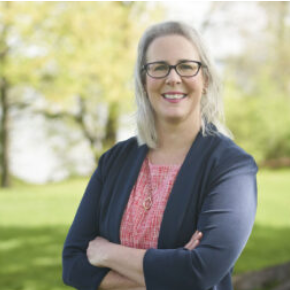 Jennifer Giergerich Speaker | Jennifer GiergerichAs the Government Affairs Director for the Wisconsin Conservation Voters, Jennifer builds long-term relationships with legislators and staff, tracks all conservation legislation and budget matters, and helps craft winning issue campaigns. Jennifer also works with field teams to develop local campaigns that build the case for state-level policy. Jennifer has a long list of policy successes, including the passage of the Clean Energy Bill in 2006, reauthorization of the Stewardship Fund in 2007, adoption of the Great Lakes Compact in 2008, shepherding the Independent DNR Secretary Bill through both houses in 2010, and the defeat of the Open-Pit Mining bill in 2012. Jennifer has additionally served in Wisconsin Women in Government and on the Policy Committee for the Wisconsin Breast Cancer Coalition. |
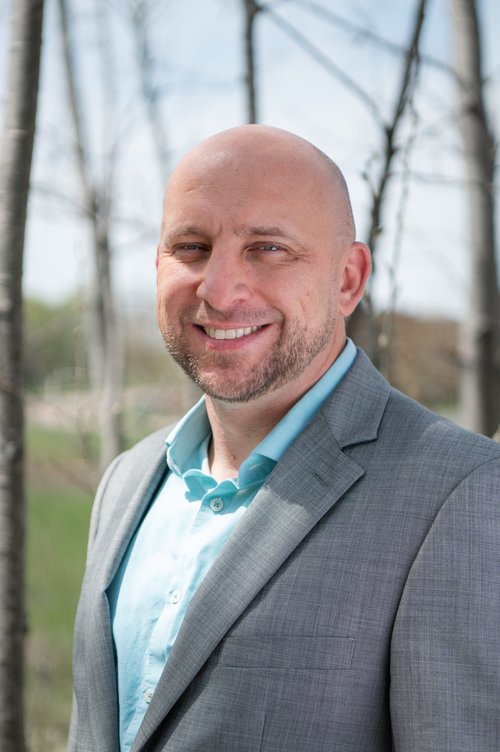 Jesse Beckendorf Speaker | Jesse BeckendorfJesse Beckendorf is the Lead Program Manager for Eneration. Before joining Eneration, Jesse Beckendorf was a project manager for Envision, a part of Gundersen Health System. His responsibilities included leadership of energy projects and the sustainability council. Before joining Envision, Jesse had a 17-year career at Dairyland Power Cooperative in southwest Wisconsin. He held various technical and leadership positions in the real estate & right-of-way, transmission design & engineering and project management departments. He was an essential member of the formation of the project management department. Jesse has a bachelor’s degree in business administration from Ashford University, Chandler, Arizona, and an associate degree in land surveying from Rochester Community & Technical College, Minnesota. He has had additional training in engineering, project management and change management. He is a member of the Project Management Institute and the Wisconsin Healthcare Engineering Association. |
 Joanne Bernstein, MD Speaker | Joanne Bernstein, MDJoanne Bernstein is an associate professor and course director for the Medical College of Wisconsin. She serves as an internist and clinical educator at the Zablocki VA in Milwaukee WI. Prior to becoming a physician, Joanne worked as an electrical engineer at GE Healthcare. As a physician and mother of two, Joanne is concerned about the current and future health impacts of climate change. She believes we all have a role to play in reducing our environmental impact for the wellness and prosperity of future generations. Joanne has taken climate action by educating her patients, minimizing waste in her clinical practices and healthcare system, engaging with local and national advocacy groups and developing medical curriculum to prepare our future physicians to do the same.
|
Joel Charles, MD, MPH Planner/Speaker | Joel Charles, MD, MPHJoel Charles is a full spectrum family physician practicing in rural southwest Wisconsin where he serves as medical director for the Kickapoo Valley Medical Clinic. From the University of Wisconsin School of Medicine and Public Health he received his MD and Master of Public Health degrees, the latter focusing on climate and health. He attended both those programs as a recipient of the Jack Kent Cooke Graduate Scholarship. He completed his residency at Sutter Santa Rosa Family Medicine Residency. Upon returning to Wisconsin he helped found Healthy Climate Wisconsin, a fast-growing group of health professionals committed to advocating for equitable solutions to the climate crisis. |
Joel Hill, MPAS, PA-C Planner | Joel Hill, MPAS, PA-CJoel joined the UW-Madison PA Program in May of 2010 with 14 years of clinical experience in military and civilian practices. As Clinical Instructor/Associate Director of Clinical Education he will head up clinical pharmacology curriculum and clinical prevention and population health modules. He will also participate in history and physical assessment evaluations. He graduated from the United States Air Force/University of Nebraska PA Program in 1996 and received his MPAS from the University of Nebraska in 1998. He practiced family medicine and urgent care for 10 years while on active duty in various locations, with a tour to Iraq in 2004. He retired from the USAF in 2006 after 21 years on active duty and began working as a surgical PA in Rapid City, South Dakota in general, thoracic and oncologic surgery. As a surgical PA he practiced hospital and clinic medicine as well as first assisting in numerous surgeries in the OR. He has also instructed at the University of Alaska while stationed in Fairbanks and for the South Dakota Academy of Physician Assistants annual conferences. |
Jonathan Patz, MD, MPH Speaker | Jonathan Patz, MD, MPHJonathan Patz, MD, MPH, is Vilas Distinguished Achievement Professor and the John P. Holton Endowed Chair of Health and the Environment at the University of Wisconsin-Madison. From 2011-2022 he served as inaugural Director of UW-Madison’s Global Health Institute and has faculty appointments in the Nelson Institute for Environmental Studies and the Department of Population Health Sciences. Patz also directs the university’s Planetary Health Scholars Program. In 2019, he was elected into the National Academy of Medicine for his pioneering work at the intersection of climate change and public health. His efforts date back to 1994, when he convened the first-ever session (and wrote the first policy resolution) on climate change for the American Public Health Association. For over 25 years, Professor Patz has taught and conducted research on climate change and has published over 200 science publications and several textbooks on this environmental public health topic. Dr. Patz co-chaired the health report for the first Congressionally mandated US National Assessment on Climate Change and for 15 years served as a Lead Author for the United Nations Intergovernmental Panel on Climate Change (IPCC) – the organization that shared the 2007 Nobel Peace Prize. Some of his other awards include: the Aldo Leopold Leadership Fellows Award; shared Zayed International Prize for the Environment; Fulbright Scholarship; American Public Health Association’s Homer Calver Award for environmental health leadership; Case Western School of Medicine Alumni Special Recognition award; elected member of the Johns Hopkins Society of Scholars, and the Chanchlani Global Health Research Award. He has earned medical board certification in both Occupational/Environmental Medicine and Family Medicine and received his medical degree from Case Western Reserve University (1987) and his Master of Public Health degree (1992) from Johns Hopkins University. |
Kelly Isabelle DeMarco Speaker | Kelly Isabelle DeMarco Occupational Therapist, WomanSpeak Circle Leader, Health and Wellness Coach, Climate Coach and Activist, Meditation and Mindfulness Trainer; active member of Healthy Climate Wisconsin, Occupational Therapy for Environmental Action, and the Climate Coaching Alliance; Mother, Farmer, Vlogger (YouTube@kellyisabelledemarco), Founder of kellyGREENcoaching, LLC. |
Kelly Sanks, PhD Speaker | Kelly Sanks, PhDKelly Sanks is the Climate Science Lead at the Center for Climate Integrity, where she uses science to inform climate models and associated climate adaptation costs. Kelly earned her PhD in Geoscience from the University of Arkansas in 2021, where she studied the interaction of river deltas and wetlands. During her PhD, she also worked as a Hydrologist for the U.S. Geological Survey, where she worked on various projects related to changing river conditions in the Southeastern United States. Before joining CCI in 2023, Kelly worked as a postdoctoral research fellow at Tulane University, where she taught Global Climate Change, researched carbon accumulation in coastal environments and its potential role as a nature-based climate solution and volunteered as a community science fellow. |
Laura Lane, JD Speaker | Laura Lane, JDLaura Lane, JD, is Healthy Climate Wisconsin’s Communications Manager. She works on the Solutions for Pollution and Climate Wins Here campaigns, both of which focus on the passage of ambitious federal climate policy and pollution safeguards that are centered on health and justice. Laura studied law at the University of Colorado and passed the Wisconsin bar in 1999. After her children were born, she became a freelance journalist. She specializes in writing for children, and her work has appeared in national magazines, including Highlights and Ask. She has written five books for children, most recently a field guide that helps kids identify 100 butterflies from around the world. She was invited to read her essay, “Pond Skating,” on Wisconsin Public Radio, and she has also been a guest on the station’s The Morning Show. |
Lisa Cottrell, PhD, CBSM, DBSM Planner/Speaker | Lisa Cottrell, PhD, CBSM, DBSMLisa is a clinical health psychologist specializing in the behavioral and psychological treatment of sleep disorders for adults, adolescents and children at AdvocateAurora Health Care. Dr. Cottrell is a diplomate of the American Board of Sleep Medicine as well as the Society for Behavioral Sleep Medicine and she completed post-doctoral training in an AASM mini-fellowship at Stanford University Medical School Sleep Medicine Clinic. She has been a member of Healthy Climate Wisconsin since its inaugural conference and is committed to providing professional and community-based education about the health effects of climate change as well as taking action to fight for policies to address the climate crisis. |
Mary Kastman | Mary KastmanA native of Evanston, Illinois, Mary Kastman is a graduate of UW Madison and the Madison College Culinary Arts Program. Mary began her culinary career in Madison, WI (Restaurant Muramoto, 43 North) before relocating to Boston in 2011. In Boston, Mary discovered her deep love for Eastern Mediterranean food and spice while working at two of Boston’s powerhouse restaurants, Oleana and Sarma. Mary relocated to Viroqua, Wisconsin and took on the role of Executive Chef at the Driftless Cafe in the spring of 2019. Her travels have included Northern Spain, Turkey and Western Europe. Her passion for localism through the lens of eastern mediterranean flavors earned her a James Beard Semi-Finalist nomination for Best Chef, Midwest in 2022. Purslane began in the summer of 2024 as a pop-up concept based in Viroqua, WI those people to the flavors of the Mediterranean and Middle East while utilizing an extensive network of small and family farms in rural Wisconsin. |
McKenzie Beyer, MS, LPC-IT Planner | McKenzie Beyer, MS, LPC-ITMcKenzie Beyer is a master’s-level graduate from the University of Wisconsin’s Stout’s Clinical Mental Health Counseling Program. She takes a client-centered approach to therapy with an emphasis on building the therapeutic relationship. Beyer has had training in different treatment modalities such as DBT, CBT, ERP, and CPT, and tailors treatment to the specific client. This allows her to meet the client where they are at and allows for different treatment options based on the client’s specific needs and goals. Beyer has had additional training in trauma, substance use, and eating disorders. She also has had experience in working with anxiety, depression, OCD, ADHD, and PTSD. |
Michelle Hoersch, MS Speaker | Michelle Hoersch, MSMichelle Hoersch is a Public Health Analyst for the Office of the Assistant Secretary for Health in the U.S. Department of Health and Human Services in Region 5 and has been with the Department since 1996, most of that time in the Office on Women’s Health. Michelle has a Master of Science degree in Health Law and Administration from DePaul University in Chicago. |
Sarah Francois, LCSW Speaker | Sarah Francois, LCSWSarah is a Clinical Social worker specializing in psychotherapy treatment for adults with OCD and Related Disorders, Anxiety Disorders and PTSD. Her 25 year career in Wisconsin includes 10+ years in community mental health (Milwaukee and Dane Counties), 9 years with the US Department of Veterans Affairs and 5 years in specialized private practice. Sarah is committed to the provision of evidence-based psychotherapy interventions and identifies as a Cognitive Behavioral Therapist embracing rigorous fidelity to treatments that work (CBT, CBT with ERP, CPT, PE and ACT specifically). She earned her Masters in Social Work from UW-Milwaukee in 2003 and a bachelors in Sociology from the University of Dayton in 1998. Sarah’s parents emigrated to Milwaukee from rural Wisconsin in 1970 after turning down the family dairy farm in hopes of a more secure financial future in “the big city.” Sarah sought to join forces with HCW after working with several adults for whom severe Obsessive Compulsive Disorder and/or Anxiety Disorders reflected thematic fears around climate change, natural disasters, personal responsibility, betrayal and hopelessness. Concurrently, Sarah’s teenage sons frequently express non-pathological climate distress and she is encouraged by this generations’ enthusiasm to be change agents.
|
 Tonyisha Harris Speaker | Tonyisha HarrisTonyisha is a passionate environmental advocate currently serving as the Illinois Climate and Energy Program Manager at The Nature Conservancy. She played a key role within the coalition and negotiation process that led to the passage of the Climate and Equitable Jobs Act in Illinois. Previously, she worked with Action for the Climate Emergency as Associate Director of Youth Media & Partnerships. Tonyisha has also held positions at the Illinois Environmental Council, including Chicagoland Conservation Manager and Clean Energy Programs Director, where she promoted clean energy initiatives. Her commitment to education and mentorship is reflected in her work as a Fellow with the New Leaders Council and as a Peer Mentor with Achieving College Excellence. She holds a Bachelor’s Degree in Environmental Science from Loyola University Chicago.
|
Travis Key | Travis Key Travis Key is a Transportation with La Crosse Area Planning Committee. He started in July of 2024 after graduating with a Bachelor's of Geography from the University of Wisconsin - La Crosse. Through his coursework and undergraduate research, he has a background in geographic information systems (GIS), environmental science, and environmental studies. Travis is passionate about sustainable transportation, loves to bike, and hopes to enable greater freedom to others to choose how they get around. |
Valeria Hairston, DPM Speaker | Valeria Hairston, DPMDr. Valeria Dee Hairston is a practicing podiatrist in Milwaukee, Wisconsin. She practices at Milwaukee Health Services, a Federally Qualified Health Care Center. Dr. Hairston is double-boarded in the subspecialties of Podiatric Surgery and Podiatric Orthopedics. Dr. Hairston has been active in the community all of her adult life. She is active in her church as well as in her sorority, Alpha Kappa Alpha, Inc. Additionally, she has been involved in various medical organizations for which on many occasions she has held leadership roles. Just to name a few she has served as Past Vice President of the Cream City Medical Society, Current Treasurer of Cream City Medical Society, Current Secretary and Board Member of the Podiatric Medicine and Surgery Section of the National Medical Association (NMA), and Current Treasurer of Region IV of the NMA. She is also a member of Healthy Climate Wisconsin. |
Victoria Gillet, MD Speaker | Victoria Gillet, MDDr. Victoria Gillet is a primary care physician and the Director for the Primary Care Track in the Internal Medicine Residency at Aurora Health Care. Dr. Gillet serves on the Forward We Energies issue team and the Milwaukee local organizing team for Healthy Climate Wisconsin, and is also involved in climate action as an active Sierra Club volunteer and the Climate Work Group lead for the Wisconsin ACP Health and Public Policy Committee Dr. Gillet earned her Doctor of Medicine (MD) from the University of Chicago Pritzer School of Medicine and completed her residency in Internal Medicine at the University of Wisconsin Hospital and Clinic.
|
Yusuf Adama Speaker | Yusuf AdamaYusuf Adama is the Health Equity and Resilient Communities Coordinator for Healthy Climate Wisconsin. Yusuf also serves on the board of the Beloit Community Health Center and is an active City Councilor in Beloit. With a strong background in fostering democracy, he has organized numerous initiatives aimed at amplifying youth voices in decision-making processes through organizations like For Our Future. Yusuf is dedicated to creating inclusive communities that prioritize the health and well-being of all residents. |
Yvonne Collins, MD, FACOG Speaker | Yvonne Collins, MD, FACOGYvonne C. Collins M.D. is a Gynecologic Oncologist and Chief Medical Officer of CountyCare within Cook County Health Hospitals System. She is board certified in Obstetrics, Gynecology, and Gynecologic Oncology. Dr. Collins is a graduate of Xavier University in Louisiana and the University of Florida College of Medicine in Gainesville, Florida. She completed her residency in Obstetrics and Gynecology at Cook County Hospital in Chicago, Illinois and her fellowship training in Gynecologic Oncology at Roswell Park Cancer Institute in Buffalo, New York. Dr. Collins has devoted her career to educating underserved women on the importance of routine health maintenance. She also has an interest in empowering women through education, eliminating barriers to care, and increasing access. She works with community organizations, area churches, beauty salons, and task forces on developing ways to decrease racial disparities related to cervical cancer. She has provided healthcare in the United States and has traveled abroad to Central America, the Caribbean, Asia, and Africa providing care. She lectures nationally and internationally with the goal of educating on disease prevention. Her honors include Outstanding Teacher (twice) and Humanitarian of the Year. She is currently a Region IV Trustee for the National Medical Association and a member of the Cook County Physicians Association. |
Policy on Disclosure
It is the policy of the University of Wisconsin–Madison Interprofessional Continuing Education Partnership (ICEP) to identify, mitigate and disclose all relevant financial relationships with ineligible companies** held by the speakers/presenters, authors, planners, and other persons who may influence content of this accredited continuing education (CE). In addition, speakers, presenters and authors must disclose any planned discussion of unlabeled/unapproved uses of drugs or devices during their presentation.
For this accredited continuing education activity all relevant financial relationships have been mitigated and detailed disclosures are listed below.
**Ineligible companies are those whose primary business is producing, marketing, selling, re-selling, or distributing healthcare products used by or on, patients. The ACCME does not consider providers of clinical services directly to patients to be ineligible companies.
Name |
Role |
Financial Relationship Disclosures | Discussion of Unlabeled/Unapproved uses of drugs/devices in presentation? |
| Yusuf Adama | Speaker | No relevant relationships with ineligible companies to disclose | No |
| Jesse Beckendorf | Speaker | No relevant relationships with ineligible companies to disclose | No |
Dafna Berman, LCSW, MSW | Planner | No relevant relationships with ineligible companies to disclose | No |
| Joanne Bernstein, MD | Speaker | No relevant relationships with ineligible companies to disclose | No |
| McKenzie Beyer, MS, LPC-IT | Planner | No relevant relationships with ineligible companies to disclose | No |
| Dawn Brintnall | Planner | No relevant relationships with ineligible companies to disclose | No |
Joel Charles, MD, MPH | Planner, Speaker | No relevant relationships with ineligible companies to disclose | No |
| Yvonne Collins, MD, FACOG | Speaker | Astellas Pharma (Independent Contractor - Other) | No |
Lisa Cottrell, PhD, CBSM, DBSM | Planner, Speaker | No relevant relationships with ineligible companies to disclose | No |
| Kelly Isabelle DeMarco | Speaker | No relevant relationships with ineligible companies to disclose | No |
| Jed Downs, MD, MPH, DOMP | Speaker | No relevant relationships with ineligible companies to disclose | No |
| Erin Duffer | Speaker | No relevant relationships with ineligible companies to disclose | No |
| Alan Eber | Speaker | No relevant relationships with ineligible companies to disclose | No |
| Sarah Francois, LCSW | Speaker | No relevant relationships with ineligible companies to disclose | No |
Sue Gaard, MS, RN | Committee Member | No relevant relationships with ineligible companies to disclose | No |
| Claire Gervais, MD | Speaker | No relevant relationships with ineligible companies to disclose | No |
| Jennifer Giegerich | Speaker | No relevant relationships with ineligible companies to disclose | No |
| Victoria Gillet, MD | Speaker | No relevant relationships with ineligible companies to disclose | No |
| Emily Haarsma, BA | Committee Member | No relevant relationships with ineligible companies to disclose | No |
| Valeria Hairston, DPM | Speaker | No relevant relationships with ineligible companies to disclose | No |
| Tonyisha Harris | Speaker | No relevant relationships with ineligible companies to disclose | No |
| Jeff Hartman, PT, DPT, MPH | Planner | No relevant relationships with ineligible companies to disclose | No |
Joel Hill, MPAS, PA-C | Planner | No relevant relationships with ineligible companies to disclose | No |
| Michelle Hoersch, MS | Speaker | No relevant relationships with ineligible companies to disclose | No |
| Annie Jones, PhD | Speaker | No relevant relationships with ineligible companies to disclose | No |
| Mary Kastman | Speaker | No relevant relationships with ineligible companies to disclose | No |
| Travis Key | Speaker | No relevant relationships with ineligible companies to disclose | No |
| Brittany Keyes, PT, DPT, ATC | Speaker | No relevant relationships with ineligible companies to disclose | No |
Cameron Kiersch, DNP, RN | Planner | No relevant relationships with ineligible companies to disclose | No |
| Laura Lane, JD | Speaker | No relevant relationships with ineligible companies to disclose | No |
| Andrew Lewandowski, DO | Speaker | No relevant relationships with ineligible companies to disclose | No |
Tracy Mrochek, MPA, RN, NPD-C | UW–Madison, NPD Staff | No relevant relationships with ineligible companies to disclose | No |
Abby Novinska-Lois | Activity Chair | No relevant relationships with ineligible companies to disclose | No |
| Jonathan Patz, MD, MPH | Speaker | No relevant relationships with ineligible companies to disclose | No |
| Rob Poehnelt, BA | UW–Madison, NPD Staff | No relevant relationships with ineligible companies to disclose | No |
| Alexis Puyleart, MD | Speaker | No relevant relationships with ineligible companies to disclose | No |
| Jeff Rich | Speaker | No relevant relationships with ineligible companies to disclose | No |
| Bryan Rogers | Speaker | No relevant relationships with ineligible companies to disclose | No |
| Kelly Sanks, PhD | Speaker | No relevant relationships with ineligible companies to disclose | No |
| Iyla Shornstein | Speaker | No relevant relationships with ineligible companies to disclose | No |
| Hannah Sorensen | Speaker | No relevant relationships with ineligible companies to disclose | No |
| Jasia Steinmetz, PhD, RD, CD | Planner | No relevant relationships with ineligible companies to disclose | No |
| Amanda Sullivan | Planner | No relevant relationships with ineligible companies to disclose | No |
| Emily Walz, MD | Speaker | No relevant relationships with ineligible companies to disclose | No |
| Elizabeth White, MD | Planner, Speaker | No relevant relationships with ineligible companies to disclose | No |
| Alexandria Zielinski, DNP, RN | Speaker | No relevant relationships with ineligible companies to disclose | No |
Accreditation Statement
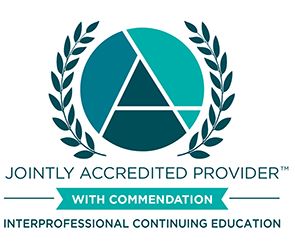 | In support of improving patient care, this activity has been planned and implemented by the University of Wisconsin–Madison Interprofessional Continuing Education Partnership (ICEP) and the Healthy Climate Wisconsin. The University of Wisconsin–Madison ICEP is jointly accredited by the Accreditation Council for Continuing Medical Education (ACCME), the Accreditation Council for Pharmacy Education (ACPE), and the American Nurses Credentialing Center (ANCC), to provide continuing education for the healthcare team. |
Credit Designation Statements
American Medical Association (AMA)
The University of Wisconsin–Madison ICEP designates this in person and virtual live activity for a maximum of 13.50 AMA PRA Category 1 Credit™. Physicians should claim only the credit commensurate with the extent of their participation in the activity.
AAPA Credit Designation Statement
| The University of Wisconsin–Madison ICEP has been authorized by the American Academy of PAs (AAPA) to award AAPA Category 1 CME credit for activities planned in accordance with AAPA CME Criteria. This in person and virtual live activity is designated for 13.50 AAPA Category 1 CME credit. PAs should only claim credit commensurate with the extent of their participation. |
American Nurses Credentialing Center (ANCC)
The University of Wisconsin–Madison ICEP designates this in-person and virtual live activity for a maximum of 13.50 ANCC contact hours.
Accreditation Council for Pharmacy Education (ACPE)
The University of Wisconsin–Madison ICEP designates this in-person and virtual live activity for a maximum of 13.50 hours of knowledge-based CPE credit. Credit can be earned by successfully completing the activity, the assessment, and the evaluation. Credit will be provided to NABP CPE Monitor within 60 days after the activity completion.
Universal Activity Number (UAN): JA0000358-9999-24-071-L99-P
ASWB Approved Continuing Education (ACE) – Social Work Credit
As a Jointly Accredited Organization, the University of Wisconsin–Madison ICEP is approved to offer social work continuing education by the Association of Social Work Boards (ASWB) Approved Continuing Education (ACE) program. Organizations, not individual courses, are approved under this program. Regulatory boards are the final authority on courses accepted for continuing education credit. Social workers completing this course receive 13.50 General continuing education credits.
American Psychological Association (APA)
 | Continuing Education (CE) credits for psychologists are provided through the co-sponsorship of the American Psychological Association (APA) Office of Continuing Education in Psychology (CEP). The APA CEP Office maintains responsibility for the content of the programs. |
Commission on Dietetic Registration Continuing Professional Education Units (CDR CPEUs)
 | Completion of the RD/DTR profession specific or IPCE activity awards CPEUs (One IPCE credit = One CPEU). If the activity is dietetics‐related but not targeted to RDs or DTRs, CPEUs may be claimed which are commensurate with participation in contact hours (One 60‐minute hour = 1 CPEU). RDs and DTRs are to select activity type 102 in their Activity Log. Sphere and Competency selection is at the learner’s discretion. |
American Physical Therapy Association (APTA)
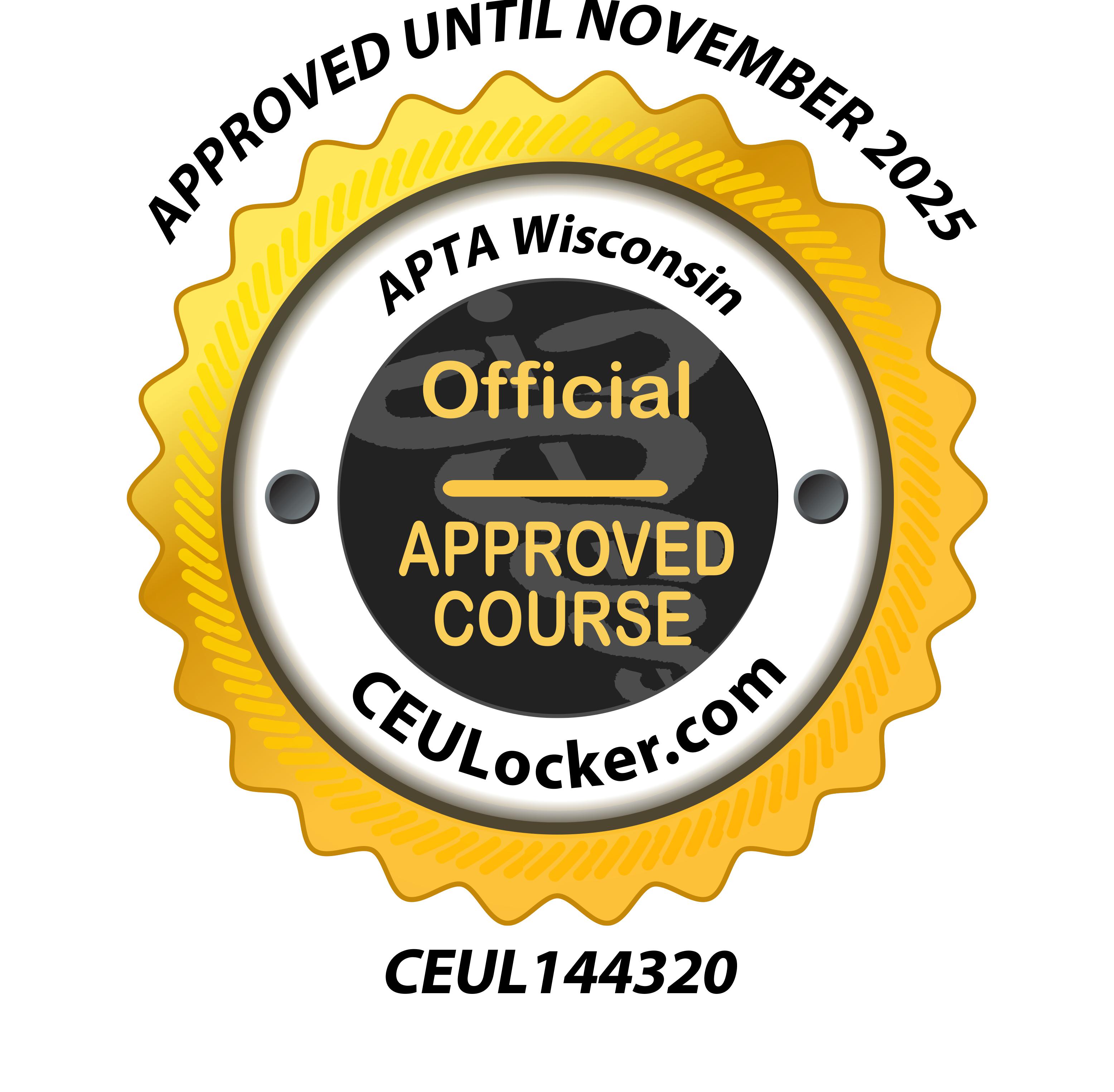 | This course was approved by the American Physical Therapy Association (APTA) Wisconsin for 13.5 contact hours. |
Continuing Education Units (CEUs)
The University of Wisconsin–Madison, as a member of the University Continuing Education Association (UCEA), authorizes this in person and virtual live activity for 1.35 continuing education units (CEUs) or 13.50 hours.
Available Credit
- 13.50 AAPA Category 1 CME
- 13.50 ACPE Contact Hours - Pharmacist
- 13.50 AMA PRA Category 1 Credit™
- 13.50 ANCC Contact Hours
- 13.50 APA CE Credits
- 13.50 CDR CPEUs
- 13.50 Physical Therapy Contact Hours
- 13.50 University of Wisconsin–Madison Continuing Education Hours
- 13.50 Approved for AMA PRA Category 1 Credit™
NEW for 2024 - Call for Posters
Click here and submit your abstract by October 25, 2024!
We believe that everyone should have the opportunity to participate.
If registration fees, travel, or accommodation are influencing your decision to attend, at all, please fill out this quick form for discounts and/or full scholarships.
Includes meals | Full Conference (Friday and Saturday) | 1-Day Only (Friday OR Saturday) | Farm to Table Workshop and Meal (Limit 50 participants) |
Physicians | $175 | $100 | SOLD OUT |
| Practicing Public and Healthcare Professionals or Health Administrators | $125 | $80 | |
| Community Members | $75 | $50 | |
| Students, Fellows, Residents, Retirees, or Fixed-Income | $40 | $25 |
Creating an ICEP account
If you REGULARLY USE a UW-Madison NetID and password, log in with your NetID (use "UW-Madison NetID" link.) Otherwise, create a Visitor Account. Contact us at [email protected] for help. Creating multiple accounts may result in the loss of earned credits.
If you have a "uwalumni.com" email address and are having trouble accessing your ICEP Learning Portal account and/or emails, please contact [email protected] for assistance
Accessibility
The University of Wisconsin provides equal opportunities in employment and programming, including Title IX requirements. The University of Wisconsin fully complies with the legal requirements of the ADA and the rules and regulations thereof. If any participant in this educational activity is in need of accommodations, please contact [email protected].
Required Hardware/software
Free, current version of Chrome, Firefox, Safari, or Microsoft Edge with audio and video capabilities. Some older browsers and Microsoft Explorer could produce error messages or not display the content correctly.
Free, current version of Adobe Acrobat Reader or other .pdf reader.

 Facebook
Facebook X
X LinkedIn
LinkedIn Forward
Forward
